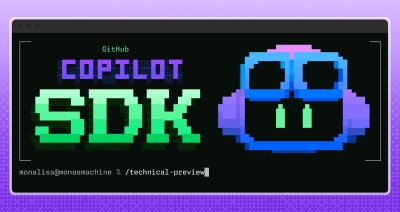Standing up for developers: the GitHub Developer Rights Fellowship at Stanford Law School
GitHub’s Developer Defense Fund will enable independent legal support from the Stanford Juelsgaard Clinic to review and handle appropriate DMCA cases for developers on GitHub and across the software ecosystem.

It is hard to stand up for your rights if you don’t know what they are. The Digital Millennium Copyright Act (DMCA) was written to strike a complicated balance between innovation, speech, and creative work online. This complexity—in particular Section 1201, which prohibits circumvention of technological protection measures like digital rights management (DRM)—is especially hard on open source developers working in their spare time, without the resources of a large company behind them. When developers looking to learn, tinker, or make beneficial tools face a takedown claim under Section 1201, it is often simpler and safer to just fold, removing code from public view and out of the common good.
At GitHub, we want to fix this. We want to make sure that developers on GitHub know their rights and have the backing to assert them. This is why we are putting our one million dollar Developer Defense Fund to work and creating the GitHub Developer Rights Fellowship at the Stanford Law School Juelsgaard Intellectual Property and Innovation Clinic.
Here’s how it works
As part of GitHub’s dedicated 1201 review process, when we notify a developer of a valid takedown claim, we will also give them the option to seek independent legal support through the clinic at no cost to them. This ensures that the developer has access to fully independent legal support, putting their interests and the interests of their community first.
GitHub is committed to advocating for developers and helping define the policies that shape the software ecosystem and how developers can freely collaborate within it. The Stanford Juelsgaard Clinic is similarly driven and seeks to help shape intellectual property law and regulatory policies to promote increased tech innovation and creativity by advocating on the behalf of innovators, entrepreneurs, and consumers. In support of these goals, GitHub’s Developer Defense Fund will enable independent legal support from the Stanford Juelsgaard Clinic to review and handle appropriate DMCA cases for developers on GitHub and across the software ecosystem.
Driving a developer-focused legal ecosystem
Our announcement today will do more than provide legal support for individual developers. In addition to providing legal counsel, the fellow will be researching, educating, and advocating on DMCA and other legal issues important for software innovation. The fellow will also train students in the clinic and other lawyers on how to work with developers and advocate on behalf of open source communities. On the whole, these activities will help shape a developer-friendly legal landscape and balance the scales on legal issues important for open source developers.
GitHub stands committed to defending developers’ rights on our platform and to advancing the interests of developers everywhere. Together with Stanford Law School’s Juelsgaard Clinic, the Developer Rights Fellowship is the next step in that commitment.
Interested in helping us shape the developer-focused legal ecosystem? The Juelsgaard Clinic is currently looking to hire its first GitHub Developer Rights Fellow and we’d love to hear from you.
Follow GitHub Policy on Twitter for updates about the laws and regulations that impact developers.
Tags:
Written by
Related posts

Build an agent into any app with the GitHub Copilot SDK
Now in technical preview, the GitHub Copilot SDK can plan, invoke tools, edit files, and run commands as a programmable layer you can use in any application.

GitHub Availability Report: December 2025
In December, we experienced five incidents that resulted in degraded performance across GitHub services.

The future of AI-powered software optimization (and how it can help your team)
We envision the future of AI-enabled tooling to look like near-effortless engineering for sustainability. We call it Continuous Efficiency.